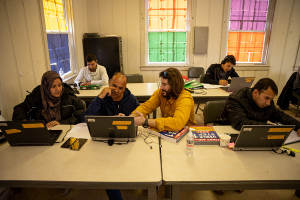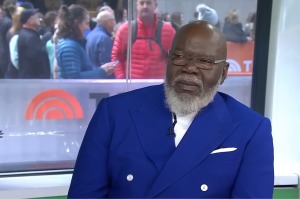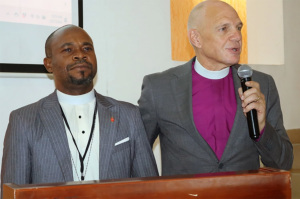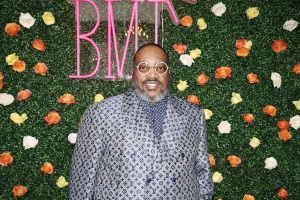Trump-Obama EEOC nominee's confirmation blocked over alleged anti-religious, pro-LGBT bias

The first openly lesbian member of the Equal Employment Opportunity Commission has failed to be reconfirmed to her post following concerns over remarks she made in which she argued that LGBT rights should trump religious liberty.
Chai Feldblum began her service at the EEOC in 2010 under the Obama administration and was renominated by President Donald Trump in 2017 to a term that expired last year.
Republican Senator Mike Lee of Utah blocked her confirmation by preventing her from getting unanimous consent, accusing Feldblum in a speech last month of holding an anti-religious bias.
Lee quoted Feldblum as labeling the debate between LGBT rights and religious liberty as a “zero-sum game” in which “a gain for one side necessarily entails a corresponding loss for the other side.”
“I see no reason why that should be the case, and I think that is fundamentally incompatible with our nation's long tradition of pluralism and religious freedom,” said Lee. “Who is she to decide whether someone should be permitted to persist in their own religious belief simply because those beliefs happen to conflict with a particular political worldview?”
Lee went on to say that the government “should never be used as a tool to stamp out religious liberty” and he believed Feldblum “wants to deny” freedom of religion.
In a response to Lee's accusations, Feldblum said in a piece published in Medium on Dec. 21 that she was being misrepresented both by Lee and a reporter who took her past comments on religious liberty "out of context."
"Senator Lee and others may feel they have kept a rabid opponent to religious liberty off the Equal Employment Opportunity Commission. They are wrong. It is true that they have ensured that someone who cares deeply about both religious liberty and LGBT rights won’t be protecting those interests from the perch of the EEOC. But I have fought for the civil rights of LGBT people, religious people and others for years. I won’t be stopping now," she wrote.
In a message posted to Twitter on Thursday, Feldblum confirmed that her time at the commission had expired and expressed gratitude for her time with the EEOC.
Before becoming a commissioner, Feldblum was a law professor at the Georgetown University Law Center where she founded their Federal Legislation and Administrative Clinic.
Feldblum helped to draft both the Americans with Disabilities Act of 1990 and the original proposed LGBT legislation, the Employment Nondiscrimination Act.
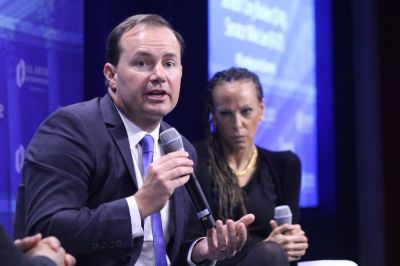
Social conservative groups like the American Family Association and the Family Research Council also expressed their opposition to Feldblum.
At issue were comments she made arguing that when LGBT rights and religious liberty are at odds with each other, the government should always side with LGBT rights. In an article Feldblum wrote for the Brooklyn Law Review in 2006, for example, she compared religious objections to homosexuality to racism.
“Just as we do not tolerate private racial beliefs that adversely affect African-Americans in the commercial arena, even if such beliefs are based on religious views, we should similarly not tolerate private beliefs about sexual orientation and gender identity that adversely affect LGBT people,” Feldblum wrote in the piece, Moral Conflict and Liberty: Gay Rights and Religion.
“I am convinced society should come down on the side of protecting the liberty of LGBT people … Protecting one group’s identity liberty may, at times, require that we burden others’ belief liberty. This is an inherent and irreconcilable reality of our complex society.”
This was especially concerning in light of several legal battles across the country centered on whether Christian business owners can refuse to service gay wedding ceremonies due to sincerely-held religious objections.
Last year, the United States Supreme Court ruled 7-2 in Masterpiece Cakeshop v. Colorado Civil Rights Commission that the state of Colorado showed an anti-religious bias when it punished baker Jack Phillips for refusing to make a same-sex wedding cake.
"When the Colorado Civil Rights Commission considered this case, it did not do so with the religious neutrality that the Constitution requires," read the majority opinion authored by Justice Anthony Kennedy.
"Given all these considerations, it is proper to hold that whatever the outcome of some future controversy involving facts similar to these, the commission's actions here violated the Free Exercise Clause; and its order must be set aside."
Other litigation remains on this issue. For example, Joanna Duka and Breanna Koski, owners of Brush & Nib Studio have sued the city of Phoenix, Arizona, over an ordinance that would force them to service same-sex weddings.
Last June, a three-judge appellate court panel ruled against Duka and Koski, stating in a unanimous decision that they did not believe that the Phoenix ordinance burdened the artists' freedom of religion.
"Appellants have failed to prove that Section 18-4(B) substantially burdens their religious beliefs by requiring that they provide equal goods and services to same-sex couples. Appellants are not penalized for expressing their belief that their religion only recognizes the marriage of opposite-sex couples," read the Court of Appeals panel's opinion.
"Nor are appellants penalized for refusing to create wedding-related merchandise as long as they equally refuse similar services to opposite-sex couples."

















